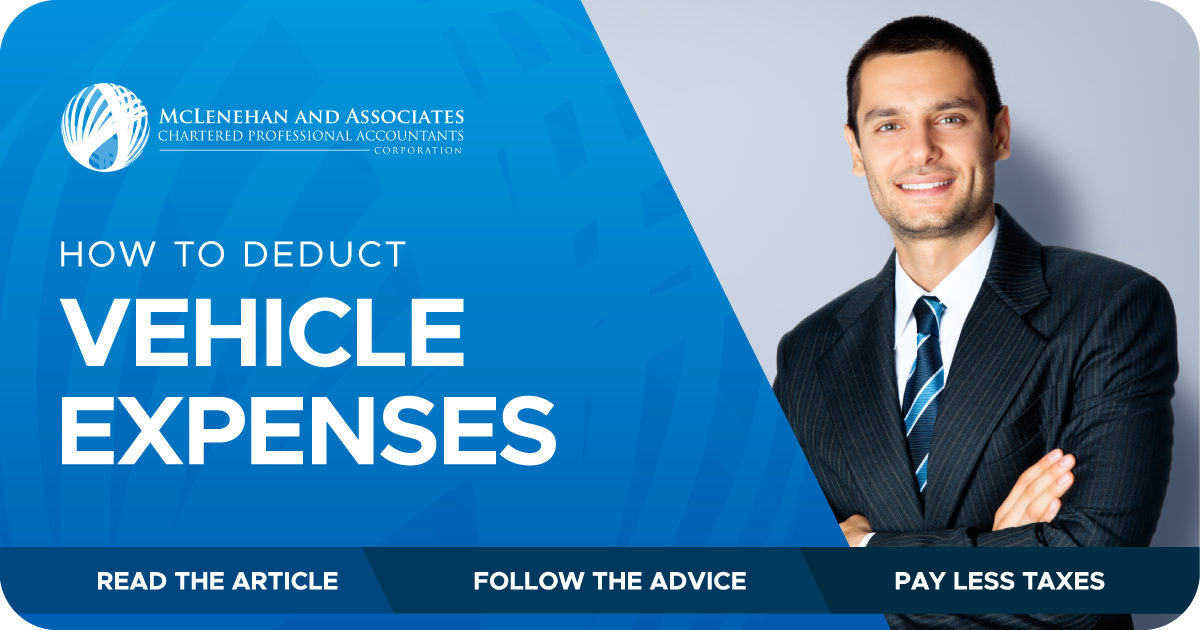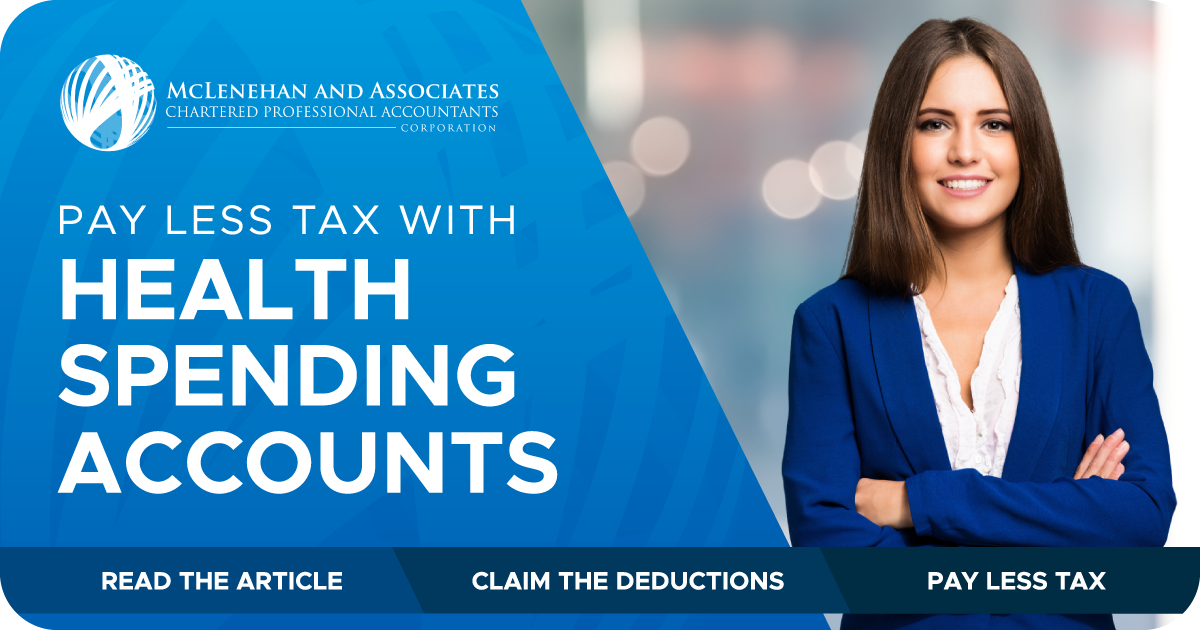WRITE OFF YOUR CELL PHONE EXPENSES
Can you write off your cell phone expenses? If you use your cell phone for business and personal calls you may have wondered how much of the cost...

You can deduct your vehicle expenses if you normally work away from your place of business. There are two accepted methods for owners of corporations to write off vehicle expenses for personally-owned vehicles used to earn business income.
SIMPLE METHOD: PER KILOMETRE MILEAGE ALLOWANCE
If you’re looking for the easy method with the least amount of record keeping then the per kilometre mileage allowance is the best option for you.
Under this method you keep track of each kilometre that you drive for business in a mileage log and pay for all of your vehicle expenses personally.
Your corporation can reimburse you based on the number of kilometres that you drive for business. For 2023, CRA has established a non-taxable vehicle allowance rate at a maximum of $0.68/km for the first 5,000 that you drive for business and $0.62/km for each kilometre that you drive after 5,000 kilometres.
The per kilometre mileage allowance counts as a deduction from taxable income in your corporation, but is a non-taxable payment to you and results in no additional taxes personally.
So for example, if you tracked 5,000 business kilometres in a mileage log for 2023, you could pay yourself $3,400 in non-taxable dollars from your corporation as a reimbursement for the use of your vehicle without paying tax on that amount!
COMPREHENSIVE METHOD: PRORATED PERCENTAGE OF VEHICLE EXPENSES
If you have the self-discipline to follow a system that requires you to be very organized with your receipts then using a prorated percentage of vehicle expenses may result in additional tax savings for you.
Under this method you keep track of each kilometre that you drive for business in a mileage log and you pay for all of your vehicle expenses through your business or personally.
By dividing the number of business-use kilometres that you drive in a year by the total number of kilometres driven in a year you will calculate the percentage of vehicle expenses that are deductible for the year.
So for example, if you have $10,000 in eligible vehicle operating expenses in a year which are paid by your corporation and you use your vehicle 60% of the time for business, you can claim $6,000 as a tax deductible expense. The $4,000 portion of the expenses which relate to your personal vehicle-use become taxable income for you as they were paid by the corporation on your behalf and for your personal benefit.
Another example, if you have $10,000 in eligible vehicle expenses in a year which are paid by you personally and you use your vehicle 60% of the time for business, you can claim $6,000 as a tax deductible expense. The $6,000 which was paid by you for the benefit of your corporation can be withdrawn tax free from your business.
Expenses related to vehicles which are used 100% of the time for business use are 100% deductible by the corporation.
Allowable vehicle expenses
The types of expenses you can deduct include:
If you use a vehicle for both business and personal use, you can deduct only the percentage of expenses related to earning business income. To support the amount you can deduct, keep a record of both the total kilometres you drove in a year and the kilometres you drove to earn business income. Also, make sure you keep all of the receipts and invoices for vehicle expenses paid in the year.
If you use more than one motor vehicle to earn employment income, calculate each vehicle's expenses separately.
What is capital cost allowance?
Capital cost allowance is tax terminology for depreciation expense claimed on your vehicle for the year. The cost you paid for the vehicle is reduced each year by a percentage prescribed by Canada Revenue Agency (30%). The reduction is the tax deductible expense.
Request A Meeting
The information above provides simplified examples of how to claim vehicle expenses in your corporate business.
If you operate a business through a corporation you should have an in-depth conversation with one of our accountants to learn how to account for this information.
This article was written for the owners of corporate businesses. If you are an employee of a business who uses your vehicle to earn employment income, see Interpretation Bulletin IT522, Vehicle, Travel and Sales Expenses of Employees for helpful information.

Can you write off your cell phone expenses? If you use your cell phone for business and personal calls you may have wondered how much of the cost...

A Health Spending Account is a cost-effective alternative or supplement to traditional health insurance. A Health Spending Account can turn your...

Do you use a home office for earning employment or business income? Claiming home office expenses on your tax return is going to reduce your taxable...